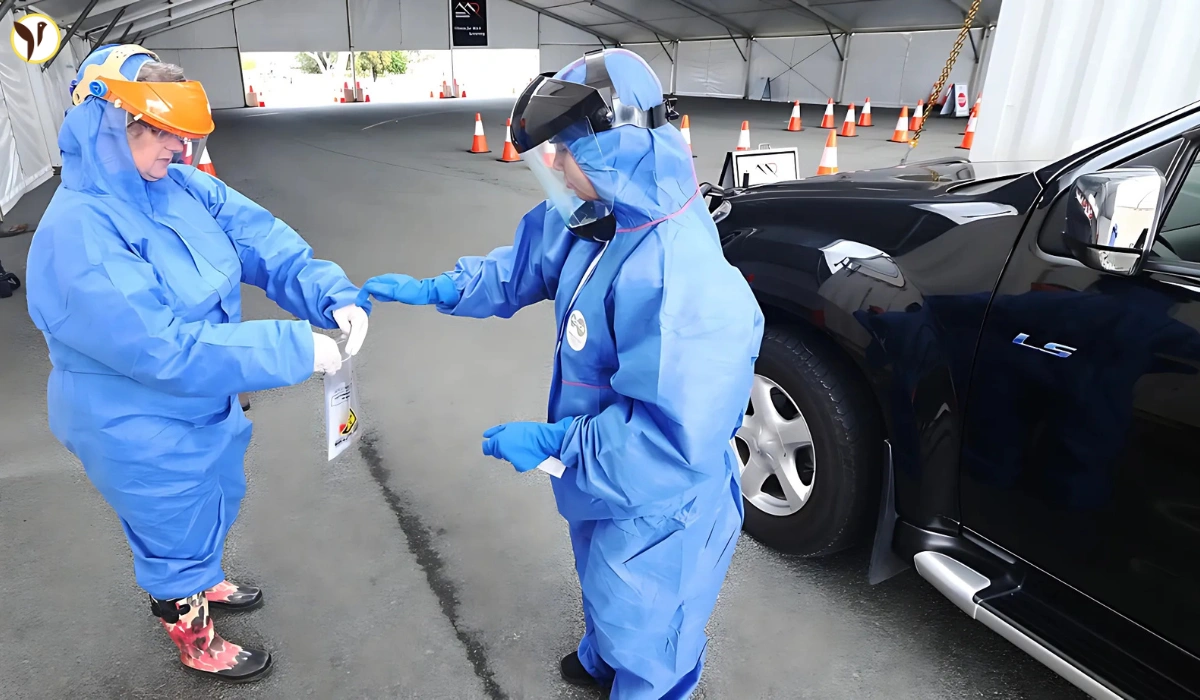COVID-19 infections in Australia are rising due to a new variant known as NB.1.8.1. This subvariant, which descends from the Omicron family, has been detected mainly in New South Wales (NSW) and Western Australia (WA). Health authorities are closely monitoring the situation as the variant slowly spreads across other states.
Understanding the NB.1.8.1 Variant
NB.1.8.1 is part of a recombinant lineage named XDV, which means it combines genetic material from different Omicron subvariants. This variant carries mutations that may help it bind more easily to human cells. Because of these changes, it could spread faster than previous strains, although more research is ongoing to fully understand its behavior.
While it spreads more quickly, symptoms reported so far are similar to those of earlier Omicron variants. Common signs include sore throat, fatigue, mild fever, cough, muscle aches, and nasal congestion. Importantly, there is no evidence yet that NB.1.8.1 causes more severe illness than earlier variants.
Current COVID Situation in Australia
Rising Cases and Testing Data
In NSW, COVID test positivity rates have increased to 5.7% as of mid-May 2025, signaling higher community transmission. Meanwhile, in WA, wastewater testing in Perth has shown that NB.1.8.1 is now the dominant strain, confirming widespread presence in the area. This method of tracking the virus helps detect community spread even before many people get tested.
Impact on Healthcare
So far, hospitals have not reported a significant surge in severe cases tied specifically to NB.1.8.1. However, health officials remain cautious, encouraging ongoing surveillance to quickly identify any changes in disease severity or hospital admissions.
How Effective Are Vaccines Against NB.1.8.1?
Current vaccines, including the latest booster shots based on the JN.1 subvariant, continue to offer good protection, especially against severe disease and hospitalization. Vaccines might be slightly less effective at preventing mild infections with this new variant but remain a critical tool in controlling its spread.
Health experts recommend that all eligible Australians receive their COVID-19 booster doses and flu vaccines as winter approaches, a time when respiratory illnesses tend to rise. Staying vaccinated helps reduce the risk of serious illness and protects the community overall.
Practical Safety Tips to Reduce Spread
-
Vaccination: Stay up to date with all recommended COVID-19 and influenza vaccines.
-
Hygiene: Wash hands regularly with soap and water. Use hand sanitizer when washing is not possible.
-
Masks: Wear masks in crowded indoor places or where social distancing is difficult.
-
Stay Home if Unwell: If you have symptoms or test positive, isolate at home and avoid contact with others.
-
Testing: Get tested if you develop symptoms or have been in contact with someone with COVID-19.
What’s Next? Monitoring and Research
Scientists and health authorities in Australia are actively studying NB.1.8.1 to better understand its transmissibility, vaccine resistance, and potential impact on public health. Ongoing genomic surveillance, combined with clinical data, will guide future recommendations and possible updates to vaccines or treatments.
Image Source: Perth Now









